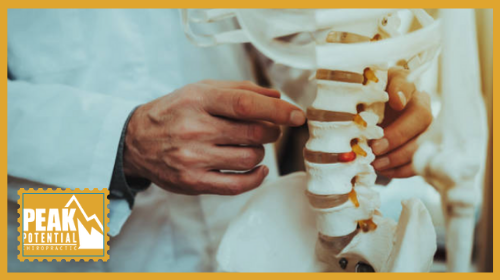Should I Use a Back Brace If I Have Back Pain?
 Should You Use a Back Brace If You Have Back Pain?
Should You Use a Back Brace If You Have Back Pain?
Many of you who have lower back pain due to disc herniations, degenerative disc disease, or back strains and sprains may benefit from using a back support/brace. Although these are the most prevalent reasons for lower back pain, your chiropractor can only identify this through a complete diagnosis. Once you've determined that you have a disc injury, sprain/strain, or degenerative disc disease, you can talk to your chiropractor about the benefits and drawbacks of wearing a back brace.
This may help you cope with your condition, as wearing a back brace can help you heal faster and relieve pain, allowing you to perform the physical tasks you need to do.
A back brace, on the other hand, may not be the ideal option if your pain is caused by a subluxation or spinal misalignment. Because a misalignment happens when one or more joints in your spine aren't moving properly or are "frozen up," this is the explanation. In this scenario, immobilizing your spine with a back brace may cause your back to heal more slowly. Additionally, using a back brace on a regular basis can weaken your spinal muscles, making it more vulnerable to injury. Consult a chiropractor if you're unsure whether or not you should wear a back brace.
How may a back brace assist you?
A back brace might assist you by offering additional spine and muscular support. By maintaining appropriate posture, you can relieve strain on your spinal nerves, muscles, and joints, which can help you feel better.
Using back support can also assist you in going about your regular activities without putting undue strain on your back. Especially when performing actions such as bending and lifting. A back brace, when used in conjunction with proper lifting techniques, can assist an ACUTE injury to heal faster and avoid further injury to an already injured area. With a chronic back condition, back braces become less effective.
How often should a back brace be worn?
It depends on whether they're in excruciating pain and what activities aggravate it. The more discomfort you have, the more frequently you should wear a brace. If physical activity causes you greater pain, you should only wear it then. If you suffer pain while resting, you should not wear a back brace since it becomes ineffective over time and can weaken your postural muscles, making your spine more vulnerable to additional injuries.
You should not wear a back brace if you have just minor pain or none at all. It's a good idea to wear it if you're preparing to perform anything that will require a lot of effort and maybe create back pain. You can put it on and take it off as needed in this situation.
Is there a downside to wearing a back brace?
The use of a back brace, like any other method of treatment, has its drawbacks. One of the drawbacks of utilizing back support is that if you wear it too much, it can weaken your spine. If you don't use your back brace as a crutch, you can easily avoid this. Patients may have higher pain when wearing a back brace on rare occasions. If this is the case, the brace may not be the best solution for you.
If you have any concerns about wearing a back brace, ask your chiropractor if he or she recommends it. Finding the source of your back discomfort and treating it appropriately is the greatest method to alleviate it. X-rays, chiropractic adjustments, stretches, strengthening exercises, ergonomic improvements, and other therapies are some of the options. At Peak Potential Family Chiropractic - Houston Heights, we can help you with all of these things. Make an appointment with us by calling!
Resources:
https://www.storeboard.com/peakpotentialfamilychiropractic-houstonheights
http://www.lacartes.com/business/Peak-Potential-Family-Chiropractic-Houston-Heights/1765325
https://www.trepup.com/peakpotentialfamilychiropractichoustonheights
https://ebusinesspages.com/Peak-Potential-Family-Chiropractic-Houston-Heights_ea226.co
https://sites.bubblelife.com/community/peak_potential_family_chiropractic_houston_heights
